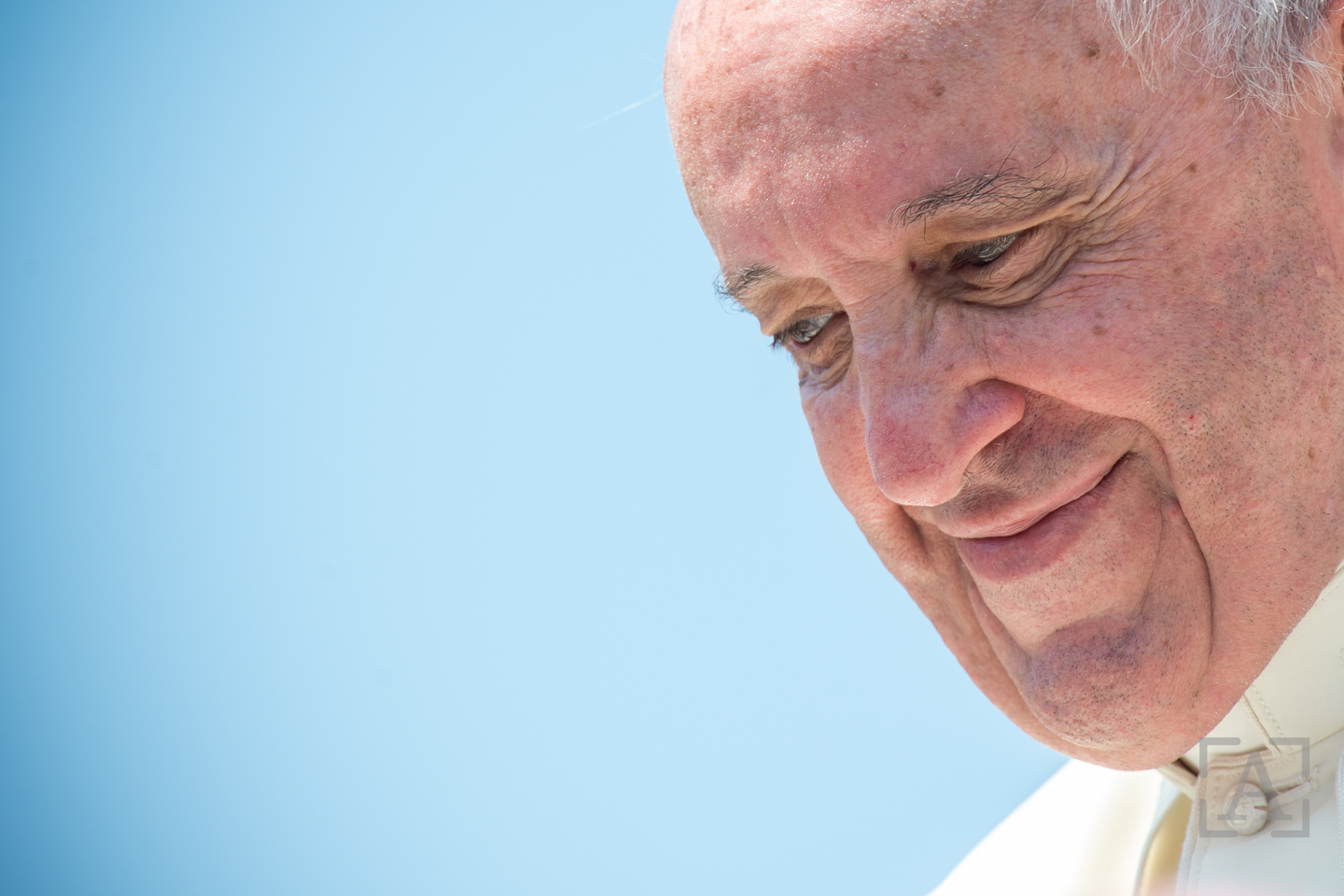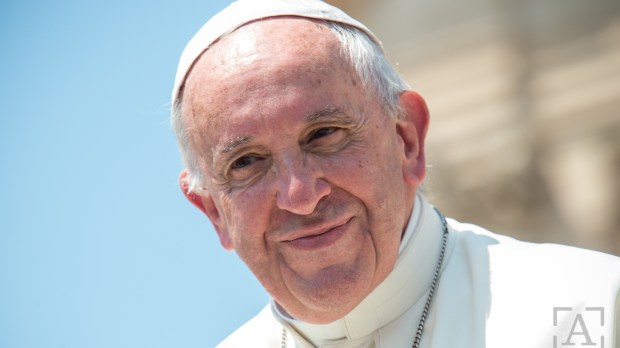VATICAN CITY — Are you unhappy? Today, Pope Francis said there is a remedy for it, and the secret lies in knowing why you are loved.
Addressing pilgrims in St. Peter’s Square at this morning’s general audience, under a hot Roman sun, the pope continued his catechesis on Christian hope. Today the Holy Father reflected on the source of that hope in God’s unconditional love, revealed for us in the coming of the Son and the gift of the Holy Spirit.
“None of us can live without love,” he said, adding that so much unhappiness in our world is born of the feeling of not being loved for our own sake.
But there is a “medicine” for an unhappy heart, he said, in a catechesis containing several important lessons.
Read the pope’s address below.

Dear brothers and sisters,
Good morning!
No one can live without love. And a terrible slavery we can fall into is thinking that love is earned. Perhaps a good part of the anxiety of modern man comes from this: believing that if we are not strong, attractive and beautiful, then no one will care about us. So many people today are seeking to be seen only to fill an interior void: as if we were people forever in need of validation. But can you imagine a world where everyone begs for reasons to arouse the attention of others, and where no one is ready to love(will the good of) another person freely? Imagine a world like this: a world without the gratuity of love! It might seem like a human world, but in reality it is a living hell. So many forms of narcissism in man come from a feeling of loneliness and being orphaned. Behind so many seemingly inexplicable behaviors lies a question: Is it possible that I don’t deserve to be called by name, that is, to be loved? For love always calls by name…
What makes us truly happy?
When an adolescent isn’t loved or doesn’t feel loved, it can lead to violence. Behind so many forms of social hatred and hooliganism there is often a heart that hasn’t been acknowledged. There are no evil children, just as there are no wholly evil adolescents, but there are unhappy people. And what can make us happy if not the experience of love given and received? The life of man is an exchange of glances: someone gazing at us is able to pry out a first smile, and we freely smiling at those closed in sadness opening a way out for them. An exchange of glances: look someone in the eyes and you open the doors of their heart.
The difference between divine and human love
The first step God takes toward us is to love us unconditionally and in advance. God loves us first. God does not love us because there is some reason in us that arouses love. God loves us because He is Love, and love by nature tends to diffuse itself, to give itself. God does not tie his benevolence to our conversion: if anything this is a consequence of God’s love. St. Paul says is perfectly: “But God shows his love for us in that while we were yet sinners Christ died for us” (Rom 5:8). While we were yet sinners. An unconditional love. We were “distant,” like the prodigal son in the parable: “But while he was yet at a distance, his father saw him and had compassion…” (Lk 15:20). For love of us, God carried out an exodus from Himself, to come to find us in this moor, through which it was foolish for him to pass. God loves us even when we had strayed.
A mother’s love mirrors God’s love
Who among us loves this way, if not a father or mother? A mother continues to love her son even when this son is in prison. I remember so many mothers, lined up to enter the prison in my former diocese. And they weren’t ashamed. Their sons were in prison, but they were their sons. And they suffered great humiliation in the searches before entering, but: “He is my son!” — “But Ma’am, your son is a delinquent!” — “He is my son!” Only the love of a mother and father can enable us to understand God’s love. A mother does not ask for human justice to be eliminated, since every error demands atonement. But a mother never stops suffering for her child. She loves him even when he is a sinner. God does the same thing with us: we are his beloved children!
A primordial beauty
But could it be that God has some children he doesn’t love? No. We are all God’s beloved children. There is no curse on our lives but only God’s gracious word, which drew our existence out of nothing. The truth of everything is that relation of love that binds the Father with the Son through the Holy Spirit, a relation into which we are welcomed through grace. In Him, in Christ Jesus, we have been wanted, loved, desired. There is Someone who has impressed in us a primordial beauty which no one, no mistaken choice can ever wholly eliminate. We are always before the eyes of God, little fountains made to well up with good water. Jesus told the Samaritan woman: “The water than I shall give him will become in him a spring of water welling up to eternal life” (Jn 4:14).
The medicine for an unhappy heart
What is the medicine to change the heart of an unhappy person? What is the medicine to change the heart of a person who is not happy? [The people respond: love] Louder! [They shout: love] Good! Good, good everyone! And how do you make a person feel that someone loves him? First you need to embrace him. Make him feel that he is wanted, that he is important, and he will stop being sad. Love calls to love, more powerfully than hatred calls to death. Jesus did not die and rise for himself, but for us, so that our sins might be forgiven. It is therefore a time of resurrection for everyone: time to raise up the poor from discouragement, especially those who have been lying in the tomb for much longer than three days. May the wind of liberation blow here, on our faces. May the gift of hope bud forth. And hope is from God the Father who loves us as we are: he loves us always and everyone. Thank you!
https://vimeo.com/221561496

